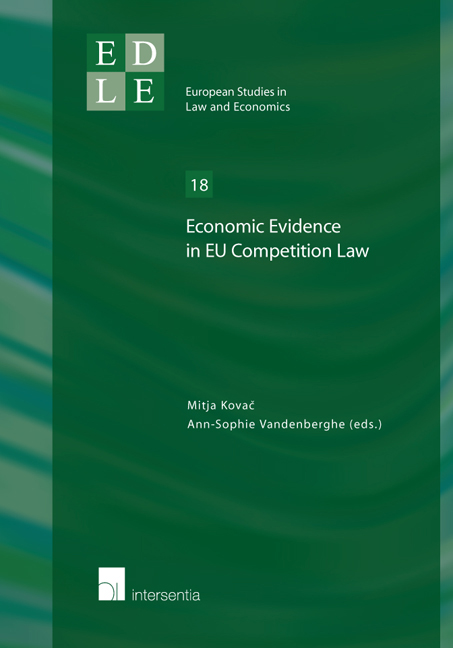Book contents
- Frontmatter
- Dedication
- Preface
- Contents
- List of Contributors
- General Introduction
- PART I ECONOMIC METHODS IN COMPETITION LAW
- PART II ECONOMIC EVIDENCES IN COMPETITION LAW
- PART III INSIDER TRADING, CARTELS AND CRIMINALISATION
- PART IV PRELIMINARY RULINGS AND STATE AID CONTROL
- Chapter 12 State Aid Cases in National Courts and the European Commission
- Chapter 13 Rescue and Restructuring of the State Aid
- Chapter 14 EU Accession Process, Judicial Review and State Aid in Turkish Competition Law
- PART V ECONOMIC EVIDENCE, ENFORCEMENT PROBLEMS AND NATIONAL COURTS
- Index
Chapter 13 - Rescue and Restructuring of the State Aid
from PART IV - PRELIMINARY RULINGS AND STATE AID CONTROL
Published online by Cambridge University Press: 21 September 2018
- Frontmatter
- Dedication
- Preface
- Contents
- List of Contributors
- General Introduction
- PART I ECONOMIC METHODS IN COMPETITION LAW
- PART II ECONOMIC EVIDENCES IN COMPETITION LAW
- PART III INSIDER TRADING, CARTELS AND CRIMINALISATION
- PART IV PRELIMINARY RULINGS AND STATE AID CONTROL
- Chapter 12 State Aid Cases in National Courts and the European Commission
- Chapter 13 Rescue and Restructuring of the State Aid
- Chapter 14 EU Accession Process, Judicial Review and State Aid in Turkish Competition Law
- PART V ECONOMIC EVIDENCE, ENFORCEMENT PROBLEMS AND NATIONAL COURTS
- Index
Summary
INTRODUCTION
The European State Aid rules are part of the overall competition framework, with a goal of ensuring and preserving workable competition in the EU internal market. The State Aid has been a part of EU competition law for several decades, but a combination of legal, economic, and public policy issues, made it sometimes less esteemed, and often neglected by professionals and was consequently for many years considered to be the ‘ugly duckling’ of EU competition law. The Global economic and financial crisis brought heightened attention to the State Aid rules and the overlooked ugly duckling is changing into a “beautiful swan.”
State aid is defined as an advantage in any form whatsoever conferred on a selective basis to undertakings by national public authorities. Article 107(1) of the TFEU defines that any Aid granted by a Member State or through State resources in any form whatsoever which distorts or threatens to distort competition by favouring certain undertakings or the production of certain goods and affects trade among Member States, is incompatible with the Internal Market. The conditions laid down in Article 107(1) of the TFEU are cumulative and thus, for a measure to be qualified as State Aid, all the conditions must be fulfilled simultaneously. Although State Aid and measures with equivalent effect are subject to the general prohibition, the TFEU specifically exempts three categories of aid, which it declares to be “compatible with the internal market.” These exemptions are (107(2) TFEU): (a) aid having social character granted to individual consumers, provided that such aid is granted without discrimination related to the origin of the products concerned, (b) aid to make good the damage caused by natural disasters or exceptional occurrences and (c) aid granted to the economy of certain areas of the Federal Republic of Germany affected by the division of Germany, in so far as such aid is required in order to compensate for the economic disadvantages caused by that division. Additionally to the three general exemptions mentioned above, paragraph 107(3) TFEU defines further five categories that “may be considered to be compatible with the common market.”
- Type
- Chapter
- Information
- Economic Evidence in EU Competition Law , pp. 249 - 270Publisher: IntersentiaPrint publication year: 2016



